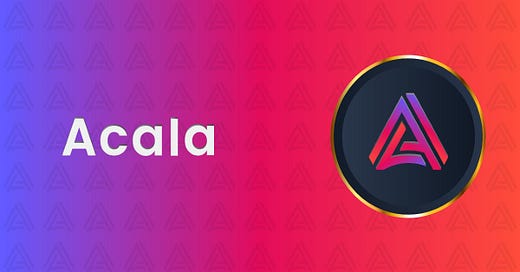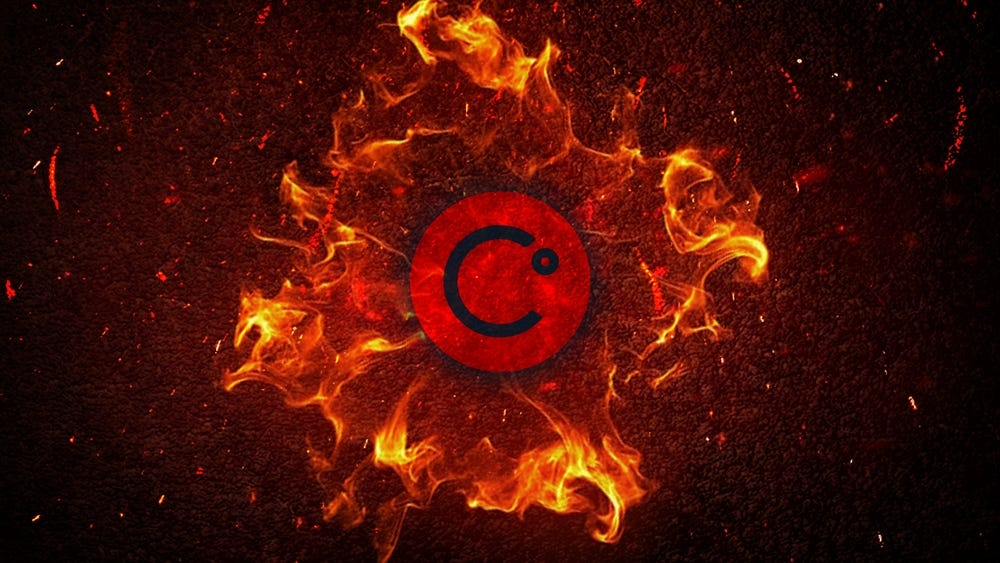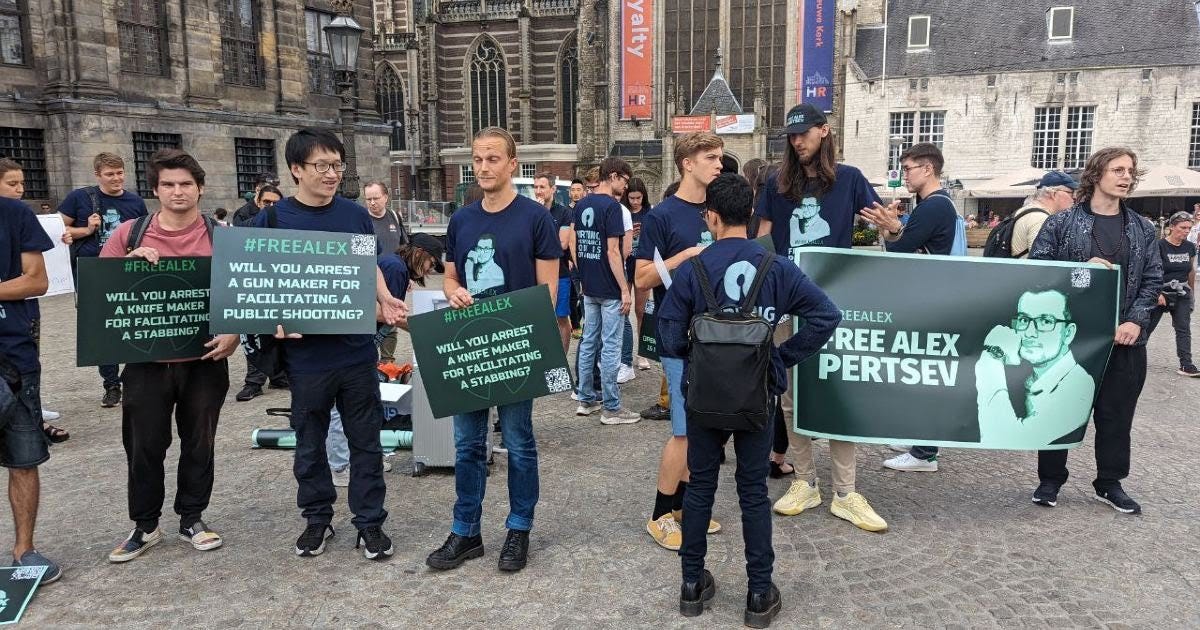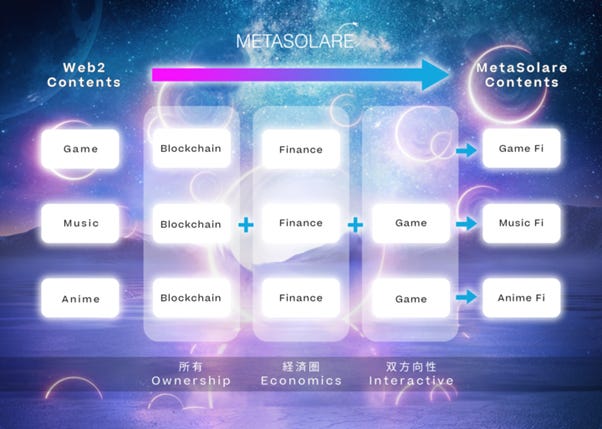ICYMI - Last week in crypto: A breath of fresh air ⚡🫂
Some good news for Web3 folks with clampdowns and fund recoveries.
Last week, users of the exploited Acala Network breathed a sigh of relief as the protocol recovered 3 billion aUSD from hackers. Also, independent investigators are set to handle the Celsius bankruptcy case, while Do Kwon beefs up his legal team in South Korea. Lastly, a new Web3 project co-founded by DJ Steve Aoki is set to bring "GameFi", "MusicFi" and "AnimeFi" to the space.
Acala Protocol Recovers Almost 3B aUSD
Acala made another breakthrough toward recovering funds affected by a recent hack. The newly-launched protocol has recovered almost 3 billion aUSD following its second trace of addresses affected by a recent attack.
On August 14, the protocol was initially attacked. At that time, a hacker created billions of dollars' worth of its aUSD stablecoin, exchanging some of that sum for other crypto assets. However, as soon as the project began, its network was frozen, making it impossible to move assets any further.
On August 15, 1.29 billion of the impacted aUSD were recovered by Acala's first trace. With the addition of another 1.68 billion aUSD through a second trace on August 17, the total amount of funds recovered now stands at nearly 3 billion aUSD.
Acala specifically claims that 1.68 billion aUSD and other tokens are still present on the 16 traced addresses. Inverse synthetic Bitcoin (iBTC), Acala (ACA), Polkadot (DOT), and liquid staking DOT are some of these additional assets (LDOT).
The 16 addresses appear to have belonged to users who contributed to Acala's iBTC/aUSD liquidity pools, according to the trace's details. After claiming rewards from a reward pool provided to liquidity providers, those addresses were given the incorrectly created aUSD.
According to Acala, it will keep publishing trace reports so that the public can develop solutions to the problem. Other reports, including a post-mortem, will also be made public.
Additionally, there are also other ongoing recovery efforts. To assist aUSD in regaining its dollar parity, a coin burn was suggested and carried out on August 16. The 1.29 billion that was found in the first trace was destroyed by the burn.
Since CoinMarketCap indicates that aUSD is now valued at $0.85, up from $0.01 following the attack, the burn was only partially successful.
United States Trustee Requests Independent Examiner in Celsius Bankruptcy Case
The Celsius bankruptcy case takes yet another twist, as the U.S. asks for an impartial examiner.
As if the Celsius bankruptcy case could not get any messier, U.S. government officials have requested the appointment of an independent examiner.
The examiner is set to investigate the company's financials and work to address the "significant transparency issues" Celsius is reportedly facing, according to a court document released on Thursday.
Independent investigators have been used in other high-profile bankruptcies, including those of Enron and Lehman Brothers, so they are nothing new.
The filing reads:
"There is no real understanding among customers, parties in interest, and the public as to the type or actual value of crypto held by the Debtors or where it is held.
An independent examiner is necessary here to investigate and report in a clear and understandable way on the Debtors' business model, their operations, their investments, their lending transactions, and the nature of the customer accounts to ensure public confidence in the integrity of the bankruptcy system and to neutralize the inherent distrust creditors and parties in interest have in the Debtors."
Moreover, "the appointment of an independent and disinterested examiner in the best interests of creditors, equity security holders, and the bankruptcy estates" is required due to the "extreme financial irregularities" in the bankruptcy case.
In addition, "fraud, dishonesty, incompetence, misconduct, mismanagement, or irregularity in the management of the affairs" would be investigated.
However, the need for such an independent examination was disputed on Twitter by unsecured Celsius creditors, who claimed that doing so would come at an unfavorable time due to costs.
The request by U.S Trustees comes only days after it was revealed that Celsius would run out of cash by the end of October before entering technical bankruptcy.
Terra's Do Kwon Hires Legal Team in South Korea
Do Kwon, the CEO of Terraform Labs, is said to have recruited a South Korean attorney in anticipation of a legal dispute. Following Terra's failure in May, Kwon and Terraform Labs are being sued in a number of different ways.
An article published on Wednesday claims that the outspoken CEO of Terraform Labs has hired a local legal team in preparation for a court dispute. The Seoul Southern District Prosecutors' Office, which is now looking into Kwon and Terraform Labs, is said to have received a letter of appointment from Kwon, according to the article.
Following Terra's $40 billion collapse in May, Kwon and Terraform Labs have been under examination from numerous agencies in recent months. The Seoul Southern District Prosecutors' Office is looking into claims that Kwon committed tax fraud and ran a Ponzi scheme in South Korea. In the midst of the investigations, investigators also conducted raids at various cryptocurrency exchanges and other sites connected to the collapse of Terra, and they issued travel restrictions on Terraform Labs employees.
Along with the U.S. Securities and Exchange Commission, the South Korean Parliament is also looking into the situation, and Kwon and Terraform Labs are the targets of class-action lawsuits in both South Korea and the US.
In a Coinage interview that was released on Monday, Kwon came forward for the first time since Terra's explosion and said that he hadn't spoken to any Korean authorities. Kwon currently resides in Singapore, where the feature was filmed.
Kwon has recently faced a number of legal difficulties as a result of Terra's implosion. Days after UST failed, Terraform Labs' legal counsel resigned in May. Soon after, news about the many Terra-related investigations and lawsuits became public.
Netherlands Authorities Clamps Down on Russian Ransomware Attacker
Over the weekend, a Russian national was extradited to the U.S. for alleged ransomware attacks, continuing the Netherlands' trend of producing news about cybercrime.
Denis Dubnikov, 29, is expected to be charged with money laundering in the District of Oregon. Before being detained in Amsterdam last November, he is said to have been involved in ransomware attacks for three years.
The Ryuk ransomware attacks used software linked to a Russian ransomware group, and Dubnikov is accused of laundering their proceeds. During the pandemic, Ryuk has been used to attack hospitals and healthcare providers in the United States. The Department of Justice's indictment claims that between August 2018 and August 2021, Dubnikov and his associates knowingly and purposefully laundered the proceeds of ransomware attacks.
More than $400,000 in ransom money is allegedly owed to Dubnikov, according to the indictment. Dubnikov could receive a maximum 20-year sentence for his crimes if found guilty.
Protests break out in Amsterdam over Arrest of Tornado Cash Developer
Alex Pertsev, the developer of Tornado Cash was also detained by Dutch authorities following the inclusion of the cryptocurrency mixing service platform on the Treasury Department of the United States sanctions list.
About 50 people were seen carrying placards with the hashtag #FreeAlex during a protest against Pertsev's arrest that took place in Amsterdam on Saturday. The fundamental argument behind the demonstration and the online petition calling for his release was that the person who creates a website or other product cannot be held accountable for the careless use of the assets they create.
In Pertsev's case, the prompt on Change.org notes that the arrest is an attempt to discourage inventive creativity within the open source software development space.
"Open-source software products have millions of users globally, while thousands of developers use open-source code in their projects. Open-source software is flexible and secure, as it can be audited, fixed, and improved by anyone," the petition reads.
"Now, Alex is being accused of creating open-source code used by Tornado Cash, a project under investigation in the US and Europe. But a developer has no control whatsoever over how their open-source code is subsequently used."
Citing examples of how the creators of the Mozilla Firefox browser and the VLC Media Player cannot be held liable for how their platforms are used, the petition established the basis for how unfair the detention is. Daria Mironova, the petition's original author, urged signatures from 2,500 people as well as participation in the demonstration that took place on Saturday.
The ultimate objective is to bring attention to the petition so that it can be seen by local media; 2,500 signatures are required to accomplish this, and as of the time of writing, the total number of signatures has reached 1,755.
Entertainment Blockchain Company MetaSolare Announces New Project For “MusicFi”, “AnimeFi”, and “GameFi”
Renowned DJ Steve Aoki and Masato Matsuura, the creator of Japanese entertainment company Avex, are co-founders of MetaSolare, a new Web3 firm set to provide "Music Fi," "Anime Fi," and "Game Fi." On its official website, the project today announced the details of its impending Web3 project and officially launched.
New entertainment genres that fully utilize NFTs and tokens are starting to receive widespread adoption as the world is on the verge of a paradigm transition from Web2 to Web3. However, for this new era to succeed, new ways of thinking and an open architecture where users are empowered and actively participating in decision-making are required.
Understanding of the blockchain and financial industries are also necessary for adapting to this change, in addition to knowledge of the entertainment sector. To create a completely new kind of Web3 entertainment project, MetaSolare has gathered experts from all these fields.
One of the most well-known members of the crypto community and co-founder DJ Steve Aoki are among the specialists, along with Masato Matsuura, the man behind Avex, one of Japan's largest media and entertainment conglomerates. They are pleased to collaborate in the MetaSolare Blockchain Ecosystem.
The goal of MetaSolare is not to exploit information and intellectual property as merely vehicles for capital investment. Instead, it combines these three aspects in a way that makes it possible to jointly develop brand-new entertainment experiences in the areas of anime, gaming, and music.
GameFi
When discussing Blockchain games, the phrases "Play and Earn" and "Play to Earn" are frequently used. Going one step further, MetaSolare envisions a world in which playing video games is a way of life.
In this universe, anybody can take on the role of "co-creator," contributing in a variety of ways and locations to create a brand-new gaming future. Their enthusiasm for the game has the potential to be both tangible and intangible assets.
MetaSolare is collaborating with a group of programmers who have experience creating some of the biggest video game franchises in the world to make this possible. Together, they'll create a better world made possible via gaming, a goal that can be shared by anyone.
MusicFi
With new forms of ownership and means to support creators available, NFTs and tokens are a potent tool for bringing together artists and fans. These new technologies will alter how music is created and how stars are produced.
Created by MetaSolare and supported by DAOs and NFTs, these musicians will be crypto-native. Holders of MetaSolare tokens and NFTs will have the chance to play a direct role in the future of the artists. For instance, token and NFT holders will assist in the selection of new artists and talents and will help them prepare for their big debut. Livestreams will also be held frequently to help showcase how far they've come.
The crew at MetaSolare has strong ties to Asia's music industry in particular. Steve Aoki, one of the most well-known DJs in the world, and Masato Matsuura, co-founder of Avex, one of Asia's biggest entertainment corporations, are both co-founders of MetaSolare. They are in a unique position to bring the next wave of crypto-native music to life because of their strong ties.
AnimeFi
The fusion of anime with blockchain creates a variety of new methods for consumers to engage with animation. In collaboration with users and producers, the MetaSolare project merged NFTs, tokens, and technology to produce an entirely new kind of animation.
Owning a piece of your favorite anime in digital form can lead to a variety of novel experiences and open the door to an altogether new funding model. MetaSolare will be there to provide you with access to that planet.
Along with DJ Steve Aoki and Masato Matsuura, other members of the MetaSolare team include: Kentaro Beppu (CEO, Co-founder), Asahi Iwanaga (COO, Co-founder), Tsubasa Murakami (CLO, Co-founder), Seihaku Yoshida (Co-founder), Robert Tran (Co-founder), Takashi Hatanaka (Co-founder), Shinichi Hisamatsu (CTO), and Teruaki Asano (CFO).
As of July 2022, the MetaSolare Web3 project had already attracted partners across different industries including Avex Technologies, Hashport Group, Ucollex International Limited, Avex Creative Factory Inc, and Abeja Inc. However, the company says it expects to announce more partners in the coming months.








